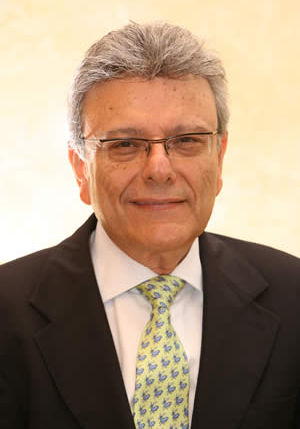KP Mission to Ensure Diamonds Meet Development Potential, Says Izhakoff
June 04, 13
(IDEX Online News) – The main responsibility of the Kimberley Process (KP) is to protect and enhance the wellbeing of ordinary citizens in diamond-producing countries, and to do that the reputation of diamonds and the diamond industry among jewelry consumers must be defended, said Eli Izhakoff, President of the World Diamond Council, in his address to the KP’s Intersessional Meeting in Kimberley South Africa. 
“For those of us who have been involved in the Kimberley Process since the year 2000, there is a sense of poetic closure today, particularly because we also are marking the 10th anniversary of the start of the Kimberley Process Certification Scheme,” Izhakoff said.
“There are those who say we have come full circle, but I personally do not see that as an accurate characterization. To come full circle implies that you have returned to the point from which you started, and that certainly is not the case. Our industry has traveled a long distance between 2000 and 2013, and the journey has caused us to experience massive change, both in the way we operate and in the ways we regard ourselves and our mission.”
Izhakoff said that since the Intersessional was the last such meeting he would attend as WDC president, the meeting was even more significant.
He praised the work of civil society groups, and their continuing strong commitment to the KP. “The NGOs, which are an integral part of the process, always have been and will remain a critical factor in the KP's maintaining its integrity as a moral force.”
He told the meeting that there are many reasons why the KP may not have succeeded in its mission. “The various partners come to the table with very different mind-sets, and even within our different camps there are frequently differences of opinion. And no wonder. We come from 80 countries around the world, north and south of the equator, from the both the developed and developing world. But we have succeeded in our mission because, while we often do not agree on the details, we are united when it comes to the mission. And it is that unity in purpose that will continue to be required as we move forward.”
He said the KP’s mission is broader than in the past. This is not due to changing objectives, “but rather because, whereas in the beginning our goal was to deal with an immediate crisis, today we have a clearer appreciation of what we are capable of when we act with unified determination.
“Our mission is to ensure that diamond resources are able to fulfill their potential as generators of positive economic and social and development, by ensuring that they are not associated with systematic acts of violence and oppression. Our primary responsibility is to protect and enhance the wellbeing of ordinary citizens in the diamond producing countries, and to do that we need to defend the reputation of the diamond and the diamond industry among jewelry consumers.
“Kimberley Process compliance is not a business strategy; it is a way of life. We do not adhere to the tenets of the KP to obtain a commercial advantage. We do so because it is the right thing to do. We do not dismiss the profit motive; after all, it is a prerequisite for survival in our industry. But we believe that profit should not be made at the expense of others, irrespective of where they are located - geographically or along the chain of distribution,” he concluded.